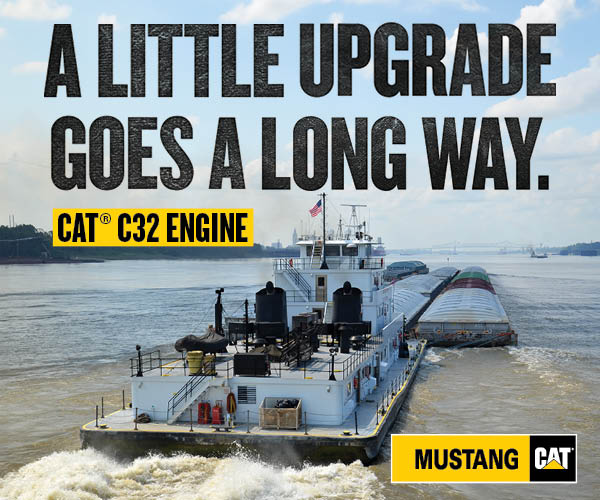Following on the heels of the “minibus” bill that included funding for the Corps of Engineers and some federal agencies for fiscal year 2019, the Senate and House have passed America’s Water Infrastructure Act, which includes the Water Resources Development Act (WRDA) of 2018. It passed even more overwhelmingly than the “minibus” in the Senate, 99-1. It had earlier cleared the House on a voice vote.
Kurt Nagle, retiring president and CEO of the American Association of Port Authorities, praised lawmakers for keeping such crucial legislation on a two-year cycle.
The law does not include any language that would authorize lockage fees and/or tolls on the inland waterways system. Preventing these has been a top priority of waterways advocacy groups.
It authorizes 12 Chief’s Reports, including one that will be funded by the Inland Waterways Trust Fund (for the Three Rivers project in southeast Arkansas).
It also authorizes three project modifications, including a Post Authorization Change Report for Chickamauga Lock to ensure that Chickamauga can continue construction once it has reached its original authorized amount.
The new law also directs the National Academy of Sciences (NAS) to evaluate the current organizational structure of the civil works function of the Corps, to identify impediments to efficient project delivery, and to provide recommendations to Congress.
The Corps’ project delivery and maintenance system has long been a topic of animated discussion among river interests and other stakeholders. In June, the White House’s Office of Management and Budget proposed splitting up and shifting the Corps’ civil-works functions to the Department of Transportation and the Department of the Interior. That proposal requires multiple actions by Congress that are unlikely to happen.
Waterways interests and their allies in Congress deserve credit for keeping President Trump’s conflicts with Congress over funding for his proposed border wall separate from water infrastructure issues. The border wall fight will instead take center stage after the mid-term elections and the expiring on December 7 of short-term continuing resolutions providing funding for some agencies.
Waterways Council Inc.’s president and CEO, Mike Toohey said, “The passage of WRDA 2018 is a win for the nation’s towboat operators, freight shippers, ports, and labor and conservation groups that rely on an efficient inland waterways system. … This bill strengthens our nation’s vital inland waterways transportation system, will create and sustain American jobs, increase exports and keep the United States competitive in world markets.”
Once again, water infrastructure issues have shown their ability to unite factions and deliver bipartisan “wins” at crucial times, such as before important elections.




